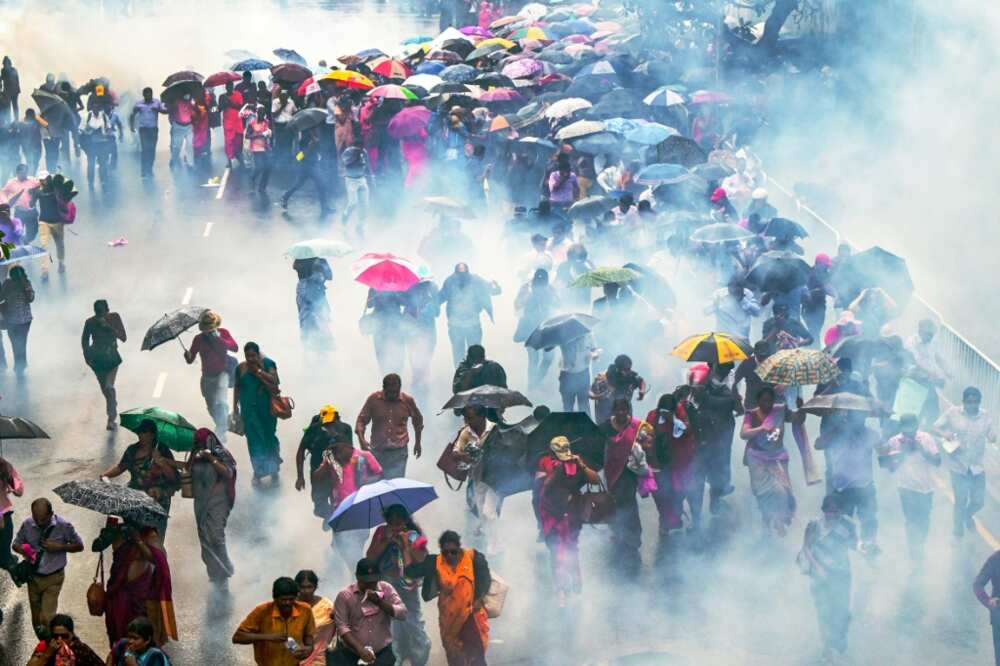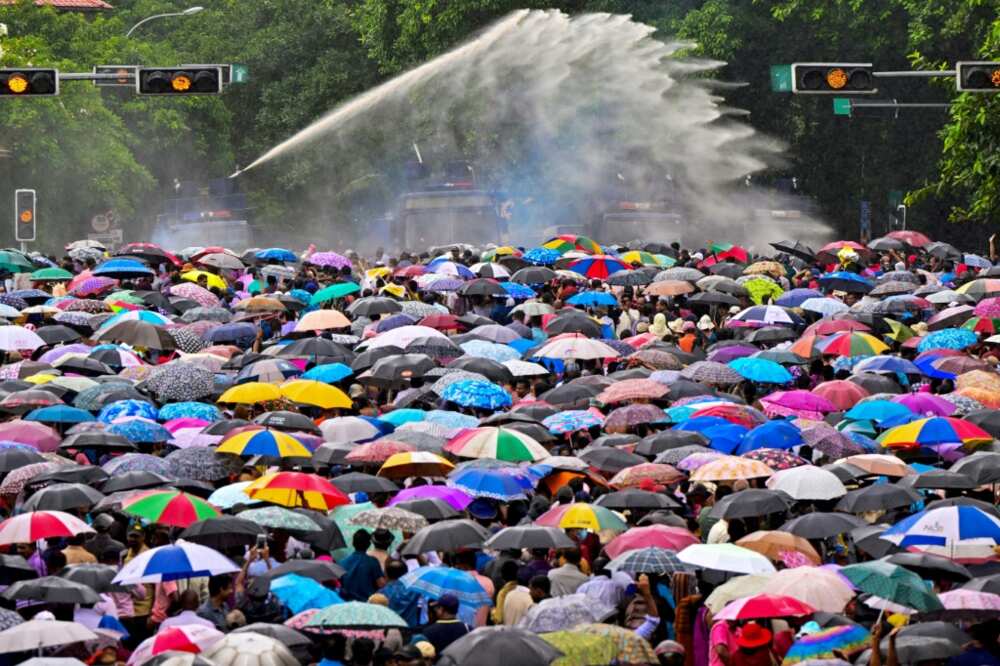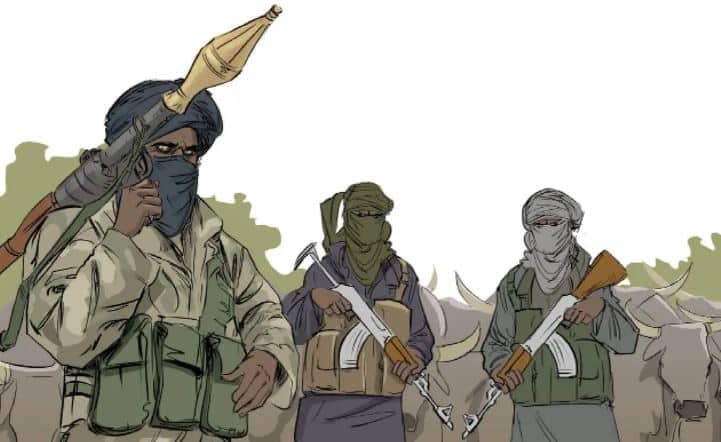 Police use water cannons and tear gas to disperse teachers striking over pay, as the consquences of a 2022 financial crash are still felt today.
Photo: Ishara S. KODIKARA / AFP
Police use water cannons and tear gas to disperse teachers striking over pay, as the consquences of a 2022 financial crash are still felt today.
Photo: Ishara S. KODIKARA / AFPSource: AFP
Cash-strapped Sri Lanka said Wednesday it had clinched a restructuring deal with a majority of bilateral lenders covering up to $5.8 billion in debt, a key step towards recovery after a 2022 financial crash.
The agreement is hoped to allow Sri Lanka to allocate funds to essential public services and secure concessional financing for development, President Ranil Wickremesinghe's office said in a statement.
The country defaulted on its foreign debt in April 2022 after running out of foreign exchange, and the unprecedented economic crisis forced then president Gotabaya Rajapaksa to step down.
"Sri Lanka reached a final restructuring agreement for $5.8 billion of debt with its bilateral lenders' Official Creditor Committee (OCC) in Paris, France," the statement read, without giving further details.
The Paris-based OCC includes members France, India and Japan.
China, the nation's largest single bilateral lender, is not a member.
But Sri Lanka's junior finance minister Shehan Semasinghe, who is in France for the negotiations, said he hoped to secure a deal with them too.
"We are also in the process of signing bilateral debt treatment agreements between Sri Lanka and Export-Import Bank of China," Semasinghe said on X, formerly Twitter.
Teachers strike over pay
The debt restructuring is a condition of a bailout from the International Monetary Fund.
 Sri Lankan police use water cannons and tear gas to disperse teachers protesting over salaries during an anti-government demonstration in Colombo on June 26.
Photo: Ishara S. KODIKARA / AFP
Sri Lankan police use water cannons and tear gas to disperse teachers protesting over salaries during an anti-government demonstration in Colombo on June 26.
Photo: Ishara S. KODIKARA / AFPSource: AFP
Earlier this month, the IMF provided the latest tranche of $336 million out of a $2.9 billion rescue package, designed to help repair Colombo's ruined finances over four years.
Bilateral creditors account for 28.5 percent of Sri Lanka's outstanding foreign debt of $37 billion, according to treasury data from the end of March.
China accounts for $4.66 billion of a total of $10.58 billion borrowed from other countries.
Japan accounts for $2.35 billion and India for $1.36 billion.
Semasinghe said the government was in talks with international bondholders, but there was no agreement. A previous round of talks ended in deadlock in April.
Sri Lanka is unable to raise commercial loans until a deal with private creditors is struck.
However, the agreement with bilateral creditors allows the unfreezing of loans for ongoing infrastructure projects financed with funding from other countries.
Wickremesinghe is due to address the nation later Wednesday, when he is expected to give details of the latest deal.
Meanwhile, thousands of teachers from government schools went on strike demanding higher pay in Colombo, with police using water cannon and tear gas to disperse the protest.
Sri Lanka is due to hold a presidential election this year and opposition parties have vowed to renegotiate the terms of the IMF bailout.
The IMF's Sri Lanka mission chief Peter Breuer said the fund was willing to listen to alternative proposals from rival political parties, but said it was necessary to stick with the benchmarks set in the bailout.
Sri Lanka had made good progress, but the country was not out of the woods yet, he said.
Source: AFP
















 English (US) ·
English (US) ·